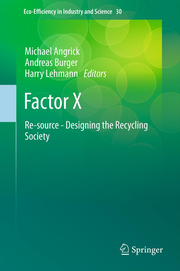Detailansicht
Factor X
Re-source - Designing the Recycling Society, Eco-Efficiency in Industry and Science 30
ISBN/EAN: 9789400757110
Umbreit-Nr.: 4005383
Sprache:
Englisch
Umfang: x, 289 S., 17 s/w Illustr., 37 farbige Illustr., 2
Format in cm: 1.7 x 24.3 x 16
Einband:
gebundenes Buch
Erschienen am 02.02.2013
Auflage: 1/2013
€ 106,99
(inklusive MwSt.)
Nachfragen
